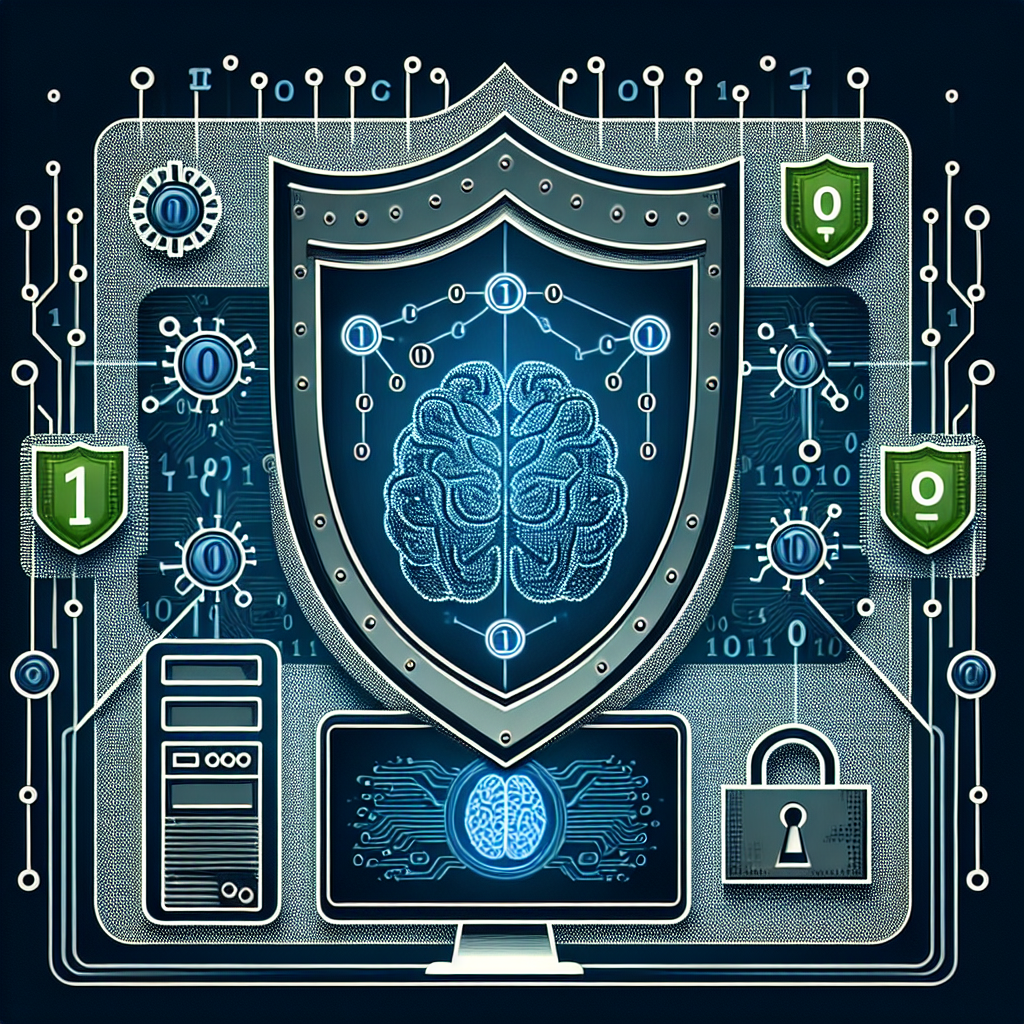In today’s digital age, cybersecurity has become a critical concern for businesses and individuals alike. With the increasing frequency and sophistication of cyber attacks, organizations are constantly looking for new ways to enhance their cybersecurity measures to protect sensitive data and networks. One emerging technology that is being increasingly adopted to bolster cybersecurity efforts is artificial intelligence (AI).
AI has the potential to revolutionize the way cybersecurity is implemented by enabling organizations to detect and respond to threats in real-time, automate routine tasks, and enhance overall security posture. In this article, we will explore how organizations can implement AI for enhanced cybersecurity measures and the benefits it can bring.
Implementing AI for Enhanced Cybersecurity Measures
1. Threat Detection and Response: AI-powered cybersecurity solutions can analyze vast amounts of data in real-time to detect potential threats and anomalies. By using machine learning algorithms, AI can identify patterns and behaviors that indicate a cyber attack, allowing organizations to respond quickly and effectively. This proactive approach to threat detection can help prevent data breaches and minimize the impact of cyber attacks.
2. Automation of Routine Tasks: AI can automate routine cybersecurity tasks, such as patch management, network monitoring, and incident response. This not only frees up security professionals to focus on more strategic initiatives but also ensures that these tasks are performed consistently and accurately. By automating repetitive tasks, organizations can improve operational efficiency and reduce the risk of human error.
3. Predictive Analysis: AI can analyze historical data and trends to predict future cyber threats and vulnerabilities. By using predictive analytics, organizations can anticipate potential security risks and take proactive measures to mitigate them. This proactive approach to cybersecurity can help organizations stay one step ahead of cyber criminals and safeguard their critical assets.
4. Behavioral Analysis: AI can analyze user behavior and network activity to identify suspicious patterns and activities. By monitoring user behavior in real-time, AI can detect insider threats and unauthorized access attempts. This behavioral analysis can help organizations identify and respond to security incidents before they escalate into serious breaches.
5. Threat Hunting: AI can assist security teams in proactively hunting for threats within their networks. By analyzing network traffic and log data, AI can identify hidden threats that may have gone undetected by traditional security measures. This threat hunting capability can help organizations uncover advanced persistent threats and other sophisticated cyber attacks.
Benefits of Implementing AI for Cybersecurity
1. Improved Threat Detection: AI can analyze vast amounts of data and identify potential threats in real-time, enabling organizations to respond quickly and effectively to cyber attacks.
2. Enhanced Automation: AI can automate routine cybersecurity tasks, freeing up security professionals to focus on more strategic initiatives and improving operational efficiency.
3. Proactive Security Measures: AI can predict future cyber threats and vulnerabilities, allowing organizations to take proactive measures to safeguard their critical assets.
4. Behavioral Analysis: AI can monitor user behavior and network activity to identify suspicious patterns and activities, helping organizations detect insider threats and unauthorized access attempts.
5. Advanced Threat Hunting: AI can assist security teams in proactively hunting for threats within their networks, enabling organizations to uncover hidden threats and sophisticated cyber attacks.
FAQs
Q: How can AI help organizations detect and respond to cyber threats?
A: AI can analyze vast amounts of data in real-time to detect potential threats and anomalies, enabling organizations to respond quickly and effectively to cyber attacks.
Q: What are the benefits of implementing AI for cybersecurity?
A: The benefits of implementing AI for cybersecurity include improved threat detection, enhanced automation, proactive security measures, behavioral analysis, and advanced threat hunting capabilities.
Q: How can organizations leverage AI for threat hunting?
A: Organizations can leverage AI for threat hunting by analyzing network traffic and log data to identify hidden threats and sophisticated cyber attacks that may have gone undetected by traditional security measures.
Q: What are some key considerations for implementing AI for cybersecurity?
A: Some key considerations for implementing AI for cybersecurity include ensuring data privacy and security, evaluating the accuracy and reliability of AI algorithms, and providing adequate training for security professionals to effectively leverage AI-powered cybersecurity solutions.
In conclusion, AI has the potential to revolutionize the way cybersecurity is implemented by enabling organizations to detect and respond to threats in real-time, automate routine tasks, and enhance overall security posture. By leveraging AI-powered cybersecurity solutions, organizations can improve threat detection, enhance automation, and proactively safeguard their critical assets from cyber attacks. With the increasing sophistication of cyber threats, implementing AI for enhanced cybersecurity measures is becoming increasingly essential for organizations to stay ahead of cyber criminals and protect their sensitive data and networks.

